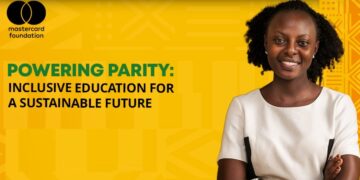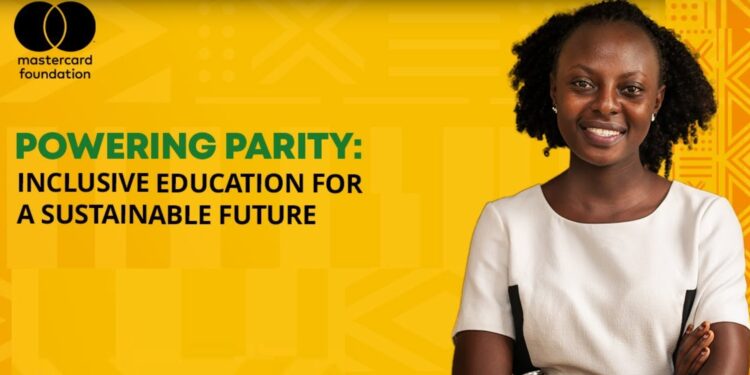By Kosi Eze and John Ikani
An estimated 32.6 million girls of both primary and lower secondary school age are out of school in Africa with 9.3 million likely to never set foot in a classroom according to UNESCO. In sub-Saharan Africa, only 67% of girls complete primary school and fewer than 40% complete lower secondary education with disparities becoming more pronounced as they progress higher in education.
The foregoing was the central focus of robust conversations at the Mastercard Foundation’s Powering Parity event held on the sidelines of the 79th session of the UN General Assembly (UNGA 79) ongoing in New York.
Themed “Inclusive Education for a Sustainable Future,” the event brought together policy reform leaders, teachers, partners, young people and scholars to ensure young women, particularly rural women, are given the opportunity to contribute to Africa’s economic growth with education as a key enabler.
“When girls and young women have access to education, they’re able to acquire knowledge and skills to transition from school into the workforce and make impactful contributions to their families, communities and countries,” said the President and CEO of Mastercard Foundation, Reeta Roy in a keynote address to set the stage for the event.
Echoing Roy’s assertion, the Chief Public Affairs and Communications, Mastercard Foundation, Sconaid McGeachin in her welcome address submitted that “We know when women work, economies thrive. Therefore it’s imperative to ensure that there is an inclusive education if we’re to have a sustainable future.”
Convergence points of submissions from multiple panel sessions of the event not only highlighted that gender equality in education in education remains an issue of critical concern but stressed the need for enrolling more girls and young women in Science, Technology, Engineering and Mathematics (STEM) fields.
“Africa remains the only continent, where gender parity has not been achieved in any level of education,” observed Professor Mohammed Belhocine who is the African Union Commissioner in Charge of Education, Science, Technology & Innovation (ESTI).
“Also less than 30% of women graduate in STEM fields in Africa, which is a missed opportunity in having women and girls to be equipped for the 21st century’s skills and be ready for the changing world of work towards sustainable future.”
Key practical solutions identified by the panellists as being helpful in removing barriers and creating inclusive educational environments in their respective African countries include collaboration and partnerships among various stakeholders, including governments, NGOs, educational institutions, and communities.
The panelists also highlighted the importance of using data to inform policies and practices with Nigerian Minister of Communications, Innovation, and Digital Economy, Dr. Bosun Tijani noting the imperative of factoring in local contexts and nuances.
According to him, “When we talk about supporting girls or women in Africa, we tend to either want to take a one-size-fits-all approach…and I realized that the answer is actually in our culture and social norms.
In my culture, there are certain things that will never let our women do because of fear of danger towards them, and sometimes that duty of care will lead to control and exclusion in economic activity.
“So we started realizing that if you’re to design a successful program for women in Nigeria, you have to be able to help their family members see that they’re not going to be exposed to danger and articulate how the programs will actually empower them to continue to be the strong support for society because women are the backbone of the family.”
The event also saw Mastercard Foundation Scholar Alum from Arizona State University (ASU) share personal narratives to illustrate the impact of educational initiatives, showcasing how empowered individuals can contribute positively to their communities.
It is worthwhile to note that the Mastercard Foundation has been consistent in enabling inclusive and innovative education in Africa.
According to the Organisation for Economic Co-operation and Development (OECD), the Mastercard Foundation is currently the largest development funder of education globally.
In 2022, the Foundation provided over USD 1.2 billion in development finance, with the majority directed towards education and youth empowerment, particularly in sub-Saharan Africa.
Keying into the African Union (AU) declaration of 2024 as the Year of Education, the Foundation organized one of the biggest-ever EdTech conferences on the continent in July to promote quality and equitable education for young people through technology.
The conference ended with 10 Recommendations for revolutionizing Learning in Africa.



































